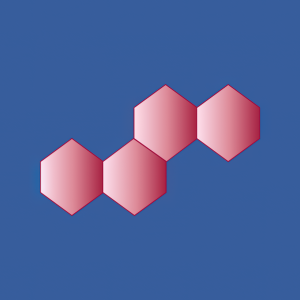Corcept Therapeutics Initiates Phase 3 Trial of Relacorilant in Patients with Cushing’s Syndrome of Adrenal Origin
Rhea-AI Summary
Corcept Therapeutics (NASDAQ: CORT) has enrolled its first patient in the GRADIENT Phase 3 trial of relacorilant for Cushing's syndrome due to adrenal adenomas or hyperplasia. This double-blind, placebo-controlled study aims to include 130 patients in the U.S. and Europe, assessing glucose metabolism and hypertension over six months. Relacorilant, an innovative glucocorticoid receptor modulator, has already shown promise in the ongoing GRACE trial for various Cushing's syndrome causes. These initiatives could strengthen treatment options and drive market growth.
Positive
- Enrollment of first patient in GRADIENT trial signifies progress in Cushing's syndrome treatment.
- GRADIENT trial aims to provide systematic data on relacorilant's benefits for adrenal Cushing's syndrome.
- Successful results from GRACE trial may support new drug application for relacorilant.
Negative
- None.
News Market Reaction
On the day this news was published, CORT declined 4.26%, reflecting a moderate negative market reaction.
Data tracked by StockTitan Argus on the day of publication.
MENLO PARK, Calif., July 28, 2020 (GLOBE NEWSWIRE) -- Corcept Therapeutics Incorporated (NASDAQ: CORT), a commercial-stage company engaged in the discovery and development of drugs to treat severe metabolic, oncologic and psychiatric disorders by modulating the effects of cortisol, today announced enrollment of its first patient in GRADIENT, a double-blind, placebo-controlled, Phase 3 trial of relacorilant in patients with Cushing’s syndrome caused by adrenal adenomas or hyperplasia.
“We are excited to begin enrollment in GRADIENT,” said Andreas Grauer, MD, Corcept’s Chief Medical Officer. “Patients with Cushing’s syndrome of adrenal origin have poor health outcomes, even if the course of their decline is sometimes less rapid than in Cushing’s syndrome of other etiologies. GRADIENT is the first systematic study of the benefits of a medical treatment in these patients. We expect it to contribute meaningfully to physicians’ ability to provide optimal care.”
GRADIENT is a double-blind, placebo-controlled Phase 3 trial, with a planned enrollment of 130 patients at sites in the United States and Europe. Half of the patients will receive relacorilant and the other half placebo for six months. The trial’s primary endpoints are improvement in glucose metabolism and hypertension.1
GRADIENT is Corcept’s second Phase 3 trial of relacorilant in patients with hypercortisolism. The company’s pivotal GRACE trial is enrolling 130 patients with all etiologies of Cushing’s syndrome at sites in the United States, Canada, Europe and Israel. Corcept expects the results of GRACE, if positive, to be the basis for relacorilant’s new drug application as a treatment for all etiologies of Cushing’s syndrome.
About Relacorilant
Relacorilant is a non-steroidal, selective modulator of the glucocorticoid receptor that does not bind to the body's other hormone receptors. Corcept is studying relacorilant in a variety of serious disorders, including Cushing’s syndrome and adrenal, ovarian and pancreatic cancer. Relacorilant is proprietary to Corcept and is protected by composition of matter and method of use patents. Relacorilant has received orphan drug designation in the United States for the treatment of Cushing’s syndrome and pancreatic cancer.
About Corcept Therapeutics
Corcept is a commercial-stage company engaged in the discovery and development of drugs to treat severe metabolic, oncologic and psychiatric disorders by modulating the effects of the stress hormone cortisol. Korlym® was the first drug approved by the U.S. Food and Drug Administration for patients with Cushing’s syndrome. Corcept has discovered a large portfolio of proprietary compounds, including relacorilant, that selectively modulate the effects of cortisol. The company owns extensive United States and foreign intellectual property covering the composition of its selective cortisol modulators and the use of cortisol modulators to treat a variety of serious disorders.
1 See our poster at the Research & Pipeline / Publications tab of our website and Clinicaltrials.gov (NCT04308590).
CONTACT:
Christopher S. James, MD
Director, Investor Relations
Corcept Therapeutics
650-684-8725
cjames@corcept.com
www.corcept.com







